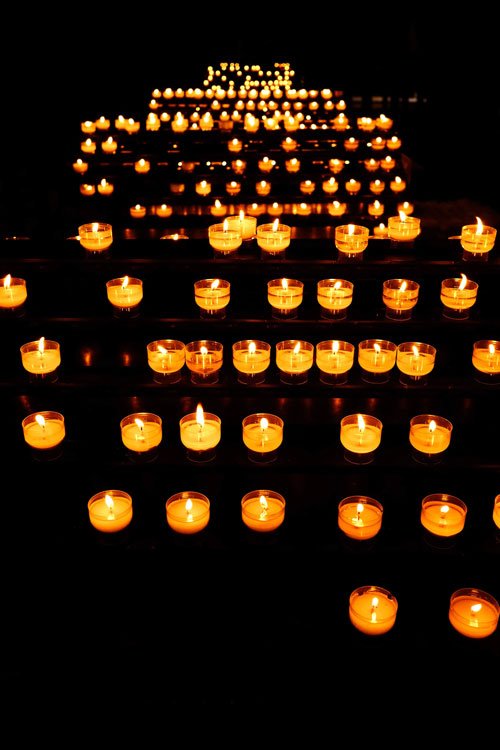
By Christopher Fuller,
While the world celebrates the new year each year on January 1, many religious and cultural traditions have their own unique new year celebrations at different points throughout the year. Judaism observes Rosh HaShanah, Muslims celebrate Ra’s as-Sanah al-Hijrīyah, and, of course, many of us are familiar with Chinese New Year. In the same way, Advent marks the beginning of the religious new year for many Christian denominations. (This year, Advent begins today, November 29.) Derived from the Latin word adventus which means “arrival,” it is the liturgical period during which Christians prepare for the birth of Jesus. However, as important as this event is, it is what his coming means that is as significant. To appreciate this deeper meaning, it is helpful to turn to first-century Jewish expectations.
By the time of Jesus, the worldview of most Jews was shaped by their scriptures (what Christians now call the Old Testament), principally a story of how disobedience had introduced sin into the human experience disrupting relationships with one another, with God, and with creation (Genesis 3:12-24) and how God had set out to reclaim the world by restoring order to all of these relationships (Isaiah 65:17). By its faithfulness to the covenant, principally through love of God and love of neighbor, Israel would model for the rest of the nations the wisdom of God’s plan for the world (Deuteronomy 4:5-8). In particular, the covenantal neighborliness of Israel’s life together would manifest itself as justice for the poor (Exodus 22;21-24). In this way it would be a “light unto all nations” (Isaiah 42:6). Unfortunately, like Adam and Eve, Israel believed that it had also fallen prey to disobedience and that God had cast it from its land into exile (Lamentations 1). However, there remained the assurance that God would fulfill the divine promise to put the world to rights and restore a just ordering of relationships.
For Christians the birth of Jesus is how God inaugurates this divine plan. Thus, echoing the call of Israel, Jesus teaches his followers to let their light shine before others (Matthew 5:16). He also instructs them to feed the hungry, give drink to the thirsty, welcome the stranger, clothe the naked, tend to the sick, and visit those who are imprisoned (Matthew 25:31-46). When they determined that Jesus’ resurrection was the “first fruits” (1 Corinthians 15:20) of God’s promised renewal, they concluded it was their task to break bread with one another, pray, share life together, and distribute their possessions to those in need as a witness to what God had set in motion through Jesus (Acts 2:44-45).
Each year we wait for the arrival of January 1, and we approach it as an opportunity for renewal. For Christians, in addition to anticipating the birth of Jesus, the Advent season serves as a reminder of the renewal that God set in motion in him and our responsibilities to live lives that bear witness to that conviction.
Votive photograph by Christopher Fuller
 Christopher Fuller is the Vice President & Chief Sponsorship and Mission Integration Officer at Saint Joseph's College. Dr. Fuller has worked for twenty-five years in Catholic higher education. Prior to his position at Saint Joseph's, he was an associate professor of theology and Director of the Hunthausen Center for Peace and Justice at Carroll College in Helena, Montana. He also served as a campus minister for ten years at Saint Mary’s College of California. During his career, Dr. Fuller has worked collaboratively with people from a variety of faith backgrounds, both Christian and non-Christian. Dr. Fuller earned his bachelor’s degree in communications at UCLA, and his master’s degree in biblical studies and doctorate in interdisciplinary studies at the Graduate Theological Union in Berkeley, California. Chris and his wife, Martha, reside in Portland, Maine and have raised identical twin sons together.
Christopher Fuller is the Vice President & Chief Sponsorship and Mission Integration Officer at Saint Joseph's College. Dr. Fuller has worked for twenty-five years in Catholic higher education. Prior to his position at Saint Joseph's, he was an associate professor of theology and Director of the Hunthausen Center for Peace and Justice at Carroll College in Helena, Montana. He also served as a campus minister for ten years at Saint Mary’s College of California. During his career, Dr. Fuller has worked collaboratively with people from a variety of faith backgrounds, both Christian and non-Christian. Dr. Fuller earned his bachelor’s degree in communications at UCLA, and his master’s degree in biblical studies and doctorate in interdisciplinary studies at the Graduate Theological Union in Berkeley, California. Chris and his wife, Martha, reside in Portland, Maine and have raised identical twin sons together.

